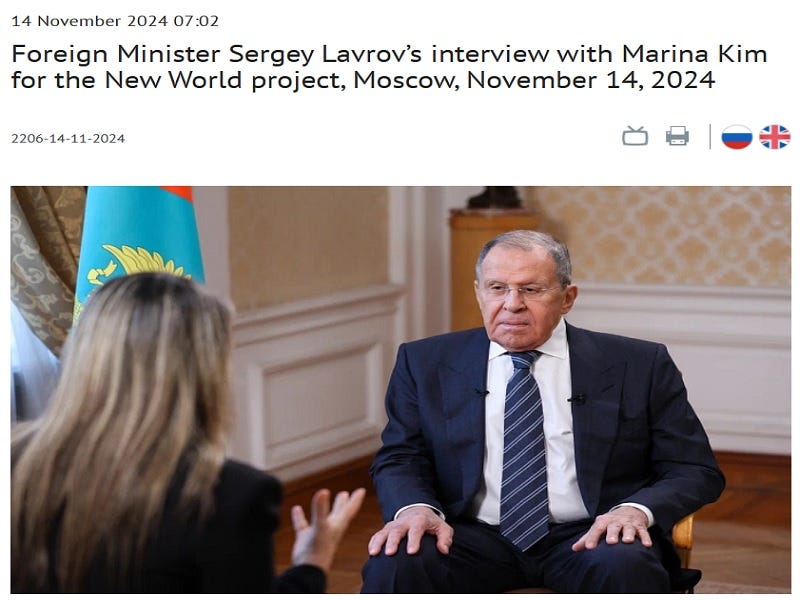These ambitious plans will obviously take time to unfold, and there might be some road bumps along the way, but the importance rests in the fact that this is what Russia is officially aiming to do.
Russian Foreign Minister Sergey Lavrov elaborated on his country’s Afro-Eurasian grand strategy in a recent interview with Marina Kim for her New World project that can be read in full here. He envisages the creation of a Greater Eurasian Partnership that brings together the Eurasian Economic Union, the SCO, and ASEAN to establish the economic and transport backbone for a new Eurasian security architecture. The latter is expected to be inclusive and eventually involve Western Eurasia with time.
The SCO and the CSTO will form the core of this security architecture, while ASEAN also has a military dimension that could contribute to this, he added. BRICS, which doesn’t include a security component, would facilitate the economic and financial aspects of these plans while strengthening the UN Charter’s central political and legal roles in the emerging world order. Its members and partners are also represented in regional integration organizations that can thus participate in these processes as well.
The group’s expansion to Africa will lead to these interconnected Eurasian-centric platforms, which revolve around the Russia-India-China (RIC) partnership, spreading their influence through that continent. The objective is to localize production facilities through more investment, which will enable those countries to reduce their reliance on the West. Eurasia will thus empower Africa and fuel the next phase of its liberation by helping it break free from neo-colonialism.
These ambitious plans will obviously take time to unfold, and there might be some road bumps along the way, but the importance rests in the fact that this is what Russia is officially aiming to do. It’ll require the Sino-Indo rapprochement to remain on track, Russia achieving as many of its maximum goals in Ukraine as possible, and progress being made on rolling out alternative financial platforms like BRICS Pay. Afro-Eurasia will also have to adroitly manage the unpredictability that Trump 2.0 is expected to bring.
These are all herculean challenges in their own right, let alone all together, so what’ll more than likely happen is that only partial success will be achieved in the medium term. This could take the form of Sino-Indo ties stabilizing but still remaining characterized by enough distrust to prevent a resolution of their border dispute, Russia compromising on some of its goals in Ukraine, and BRICS launching just some of its projects, and even then, only imperfectly. Afro-Eurasia might also be destabilized by Trump.
The odds would be more in Russia’s favor if China and India resolve their border dispute, Russia goes on a large-scale offensive in Ukraine soon, and BRICS becomes more willing to defy Western sanctions. These could be brought about by the new circumstances stemming from more Sino-US tensions, speculative North Korean military assistance (troops and/or equipment), and greater political will. As for mitigating instability in Afro-Eurasia, there’s no perfect solution, so some instability is thus inevitable.
With all that in mind and considering the unlikelihood that the stars will align in the way they’d have to for everything to work out, Russia’s grand strategy in Afro-Eurasia as recently elaborated upon by Lavrov will therefore probably remain mostly conceptual in the medium term. This assessment would change if RIC strengthens, however, but the prerogative is on China and India for that to happen. Accordingly, expectations should be tempered, but observers also shouldn’t despair since a breakthrough is possible.





Excellent article even measured in the high standards of Andrew's typical posts. To the point. Not a single weak paragraph.
This plan will be implemented. RIC are civilizational nation-states, therefor speed of the project is less important than its overall viability as it progresses. Stability with partners, inclusiveness in objectives, mutual benefits especially over time & strengthening of cultural ties all are crucial to this plan.